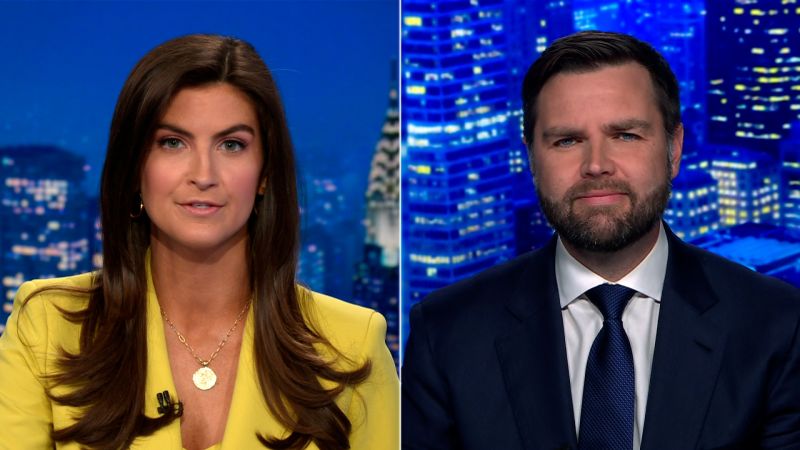During a recent interview on CNN, Senator J.D. Vance was confronted by anchor Kaitlan Collins regarding what she perceived as a “double standard” in his treatment of protesters from different political events. Specifically, Collins questioned Vance on his condemnation of pro-Palestinian protesters on college campuses while also showing support for the January 6 protesters who stormed the US Capitol. This line of questioning highlights the ongoing debate over the perceived differences in how certain protest movements are viewed and criticized based on their political affiliations.
Vance responded to Collins’ questioning by noting that he believed the January 6 protesters were exercising their rights to peacefully protest, despite the violence that ensued during the events at the Capitol. He emphasized that his support for these protesters stemmed from his belief in the importance of protecting political speech in the United States, even when it may be controversial or unpopular. Vance also defended his criticism of pro-Palestinian protesters on college campuses by arguing that their actions often crossed the line into antisemitism, leading him to speak out against what he perceived as hateful rhetoric.
The exchange between Collins and Vance underscores the broader issue of how political protests are perceived and judged based on their ideological foundations. The question of whether peaceful demonstrations should be treated differently depending on their political leanings raises concerns about the potential for bias or inconsistency in how protests are evaluated and criticized by both the public and political figures. The controversy surrounding the events of January 6 and subsequent protests reflects the deep divisions within American society and the ongoing struggle to navigate complex issues of free speech, public dissent, and the right to protest.
Vance’s defense of his support for the January 6 protesters and criticism of pro-Palestinian demonstrators sheds light on the complexities of navigating the boundaries of free speech and political expression in a polarized political climate. By asserting his belief in the importance of protecting political speech, even when it may be controversial or contentious, Vance positions himself as a defender of democratic principles while also drawing criticism for what some perceive as inconsistent treatment of different protest movements. The debate over the perceived double standard in Vance’s approach to different protest groups highlights the challenges of balancing the protection of free speech with the need to address harmful or hateful rhetoric within public discourse.
Overall, the confrontation between Kaitlan Collins and J.D. Vance represents a microcosm of the wider debates and divisions within American society over issues of political protest, free speech, and democratic norms. The contrasting treatment of different protest movements, such as the January 6 demonstrations and pro-Palestinian activism, underscores the complexities and tensions inherent in navigating political dissent and public expression in an increasingly polarized environment. As politicians and media figures continue to grapple with these contentious issues, the need for thoughtful and nuanced dialogue around the boundaries of free speech and protest remains crucial in preserving the democratic foundations of the United States.
The clash between Collins and Vance serves as a reminder of the challenges and complexities that arise when navigating the boundaries of political expression and protest in a deeply divided society. By questioning Vance’s perceived double standard in his treatment of different protest movements, Collins sheds light on the broader issues at play in the debate over free speech, political dissent, and the protection of democratic norms. As the United States continues to grapple with these contentious issues, the need for open and honest dialogue around the complexities of political protest remains essential in fostering a more inclusive and democratic society.


